
Sliding away from Unity: The Democratic Dilemma in the European Union
As the European Union (EU) steadily approaches the 2024 elections scheduled for June, attention is focused on the likely formation of a coalition between the conservatives (EPP) and the socialists (S&D). However, amidst this political landscape, a chorus of concern is emerging about the EU’s tendency towards authoritarianism, underlined in particular by democratic backsliding in Hungary and Italy (Pietrucci, 2023). Projections indicate a potential consolidation of influence by two far-right factions, namely the Identity and Democracy (ID) and European Conservatives and Reformists (ECR), alongside the independent Hungarian Fidesz, amounting to a considerable 25 per cent share of parliamentary seats (Wax, 2024). Concurrently, the proliferation of radical ideologies within the EPP poses a significant challenge to the wider European sphere, with …

Populism and Crisis: Exploring the Interplay of Political Dynamics
Over the past two decades, the world has faced a series of crises including economic downturns, political disruptions exemplified by events such as the latest example of the Covid-19 pandemic, which have generated a discourse around a perceived crisis in democratic governance. Due to its perceived association with these crises, populism has become a focal point of both academic inquiry and broader societal discourse, with a strong emphasis on its relationship with democracy (Mény & Surel, 2002). Scholarly investigations into populism have expanded to encompass various dimensions, including its conceptual underpinnings and implications for democratic systems. The existing literature on populism underscores its delineation along two main axes: the assertion of popular sovereignty and the espousal of anti-establishment sentiments. Despite …
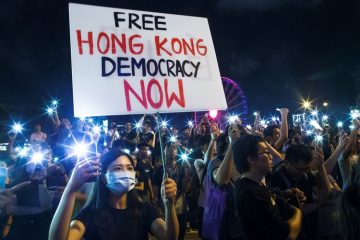
Can the Pro-Democracy Hong Kong Lobby Still Influence Western Foreign Policy?
During the 2019 Anti-Extradition Bill protests in Hong Kong, activists made extensive efforts to internationalize their movement, engaging in public diplomacy and lobbying foreign governments to support their cause. The Hong Kong pro-democracy lobby—a loose coalition of individuals and organizations aiming to steer Western foreign policy in a direction they believe will benefit Hong Kong’s democratic prospects—emerged amidst this unprecedented grassroots mobilization. Four years on, however, the Hong Kong lobby is facing an uncertain future. Activists are striving to overcome the barriers posed by transnational repression and reinvent their image in today’s fraught geopolitical landscape. Two factors explain the success of Hong Kong activists in constructing and consolidating their lobbying infrastructure in 2019. First, the expansion and transformation of the …
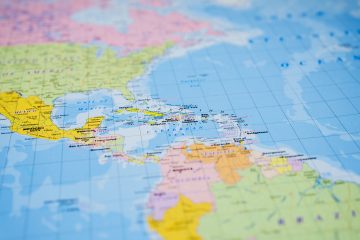
The Biden Administration Must Improve its Foreign Policy Toward Latin America
Historian Joseph S. Tulchin once described U.S.-Latin American relations as a “historical legacy of conflict.” Over the last two years, the Biden administration has neglected regional concerns in Latin America. With a new year ahead, the Biden administration must revaluate its relationship with the region with ample considerations of social geopolitical elements tinted with historic predispositions. Regional concerns cannot continue to be addressed from a preoccupied hardline position. As other nations outside the Western hemisphere strengthen their influence in Latin America, the time to disregard human dignity as imperative to current affairs must end. A U.S. Progressive Foreign Policy While the Biden administration has advocated for a foreign policy stipulated to adhere to international human rights norms, it has failed …
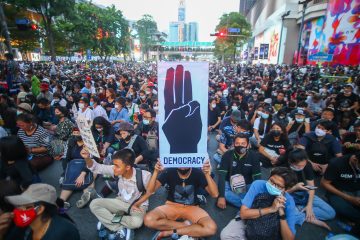
What is peripheral about Thai (democratic) politics?
The latest mass uprisings in Thailand have driven a wedge between people who remained complacent towards the status quo and people who sought to upend what they saw as conservative authoritarianism by resorting to rally politics. The latter wished to take matters into their own hands and steer the country in a more democratic direction as faith in mainstream political actors dwindled. Should marginalized civil-society actors not take drastic measures, future political trajectories will remain shrouded in conservative mist. A military coup in 2014 had enabled the conservative establishment to tighten its grip on the country’s politics. This is not a one-off incident but a recurring pattern in Thailand’s modern history. Via military coups, conservative forces have always found a …
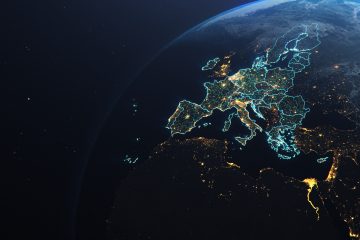
Who governs? When and why governments appoint technocrats?
One of the most critical questions of modern comparative politics is: who governs? The first thing that would come to mind would be party politicians. However, transformations in several European countries’ governmental arena indicate that partisan presence in office, and, more broadly, the general model of party government, characterised by parties’ centrality in representing the needs and demands of citizens, is in decay. Such a decline owes much to the increased government involvement of technocratic personnel – i.e., ministers with no political affiliation. Indeed, while Italy established itself as the promised land of technocracy, currently led by Mario Draghi and by four technocratic prime ministers in the last two decades, technocratic ministers have also entered the last three partisan governments …
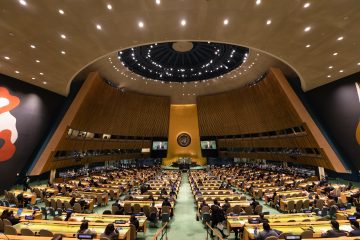
Citizens worldwide want a stronger and more democratic UN: Findings from an international survey by Oxford, LSE, and Griffith researchers
This week, political leaders from countries all over the world are gathering for their annual meeting at the United Nations (UN) in New York. Since its creation and to this day, there have been discussions about reforming the UN. Soon after the UN was founded in 1945, public figures like Albert Einstein called for a much more powerful and democratic UN. Today, leaders such as Ukrainian President Zelensky urge fundamental reforms to strengthen the UN, while NGOs like Democracy Without Borders campaign for making the UN more democratic and representative of citizens. In an international survey in six countries worldwide (Argentina, China, India, Russia, Spain, and the United States), Mathias Koenig-Archibugi (London School of Economics and Political Science), Luis Cabrera …
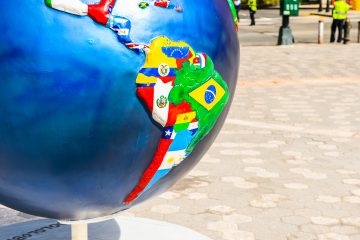
The Judicialization of Politics in Latin America, Anti-corruption Crusades and Their Impact on Democratic Processes: Q&A with Professor Ezequiel González-Ocantos
In the upcoming months, the OxPol Blog will be featuring Q&A sessions with faculty from the Department of Politics and International Relations to highlight their ongoing research. Over the last few weeks, the OxPol editorial team spoke with Professor Ezequiel González-Ocantos about his ongoing projects since winning the Philip Leverhulme Prize in 2018. OxPol (OP): In 2018 you were awarded the Philip Leverhulme Prize. Could you share what projects you have been working on over the last few years since winning the prize? Ezequiel González-Ocantos (EGO): Since 2018 I’ve been working on three different projects. First, together with my colleagues Sandra Botero and Daniel Brinks we curated a collection of essays that looks at new trends in the judicialization of politics in …









